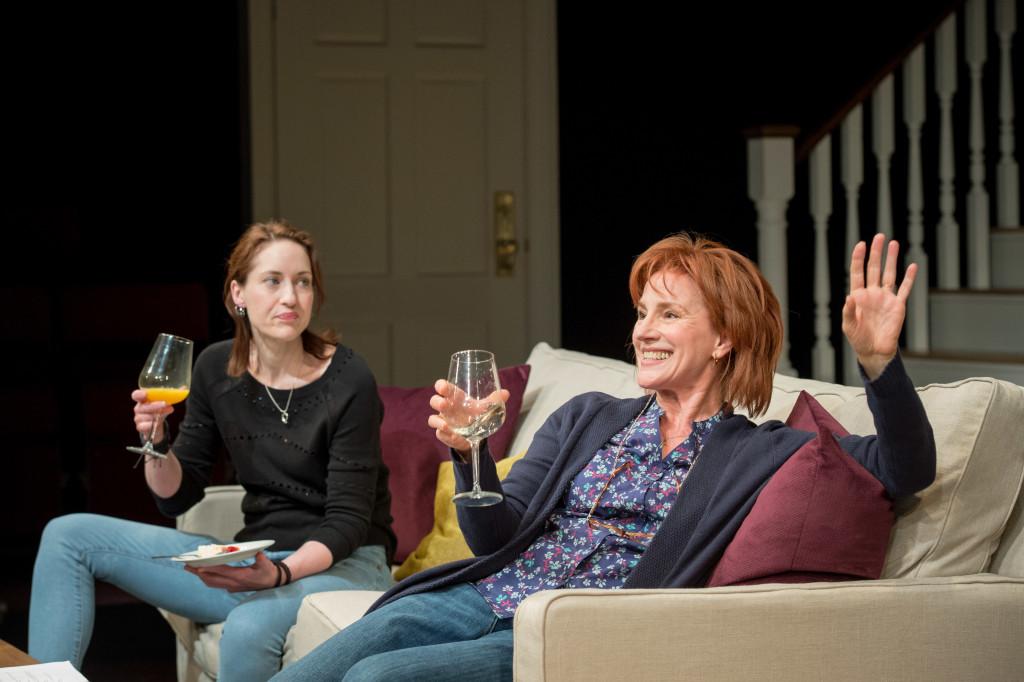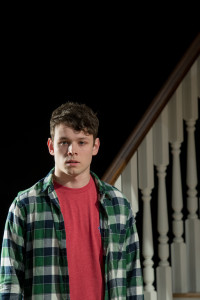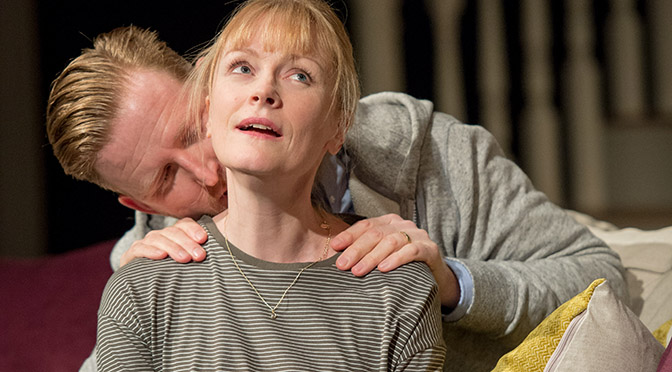When it comes to sensitive subject matter, a family’s grief at the death of a child is a particularly brave topic to tackle. But the sensitivity and intelligence that playwright David Lindsay-Abaire brings to his play will make you glad to have seen a work that feels so truthful.
The marriage of Becca and Howie is placed under pressure after the accidental death of their son. Claire Skinner and Tom Goodman-Hill are tremendous as this unfortunate couple. Following their ups as well as downs, seeing the differences in how they manage their bereavement, their strengths and weaknesses are revealed. Skinner is especially strong in the single scene where she breaks down. Restraint is the key to her character and the whole play – emotions are palpable but skilfully held in check in a rich text full of suggestions and suspicions, which explores grief but never feels exploitative.

Such is Lindsay-Abaire’s skill that, remarkably, this is a play with plenty of laughs despite the subject. Much of the humour comes from clever observations of social class in America. This is a family split demographically, with Becca’s mother and sister having a little of the “Jerry Springer” about them. Impeccably performed by Georgina Rich and Penny Downie, both are fully realised, appealing, characters and could easily have a play of their own. The point is that neither the play, nor its characters are paralysed by grief. After all, in the real world, you can’t be.

Becca and Howie are the focus but they come to fear “the face” from others who can’t deal with their tragedy – in particular, Jason, the driver of the car involved in the accident, who looks to find his own closure. In three short scenes, Sean Delaney makes his mark in the role. Becca’s willingness and Howie’s reluctance to meet him provide the play’s most heartfelt moments. Fittingly, Jason provides hope in the play, providing a scientific theory of parallel universes that Becca can take solace from (she movingly speculates that her present shows only “the sad version of us”).
Rabbit Hole is the second play by Lindsay-Abaire to be performed at Hampstead. Previously, Good People was a theatrical highlight of 2013 and a West End transfer that it’s to be hoped sets a trend. It’s a fruitful association for the venue and director Ed Hall, who shows a through appreciation of the writing and an ability to empower the cast to face the comedy in the piece. I can’t wait to see more from the combination.
Until 5 March 2016
Photos by Manuel Harlan

